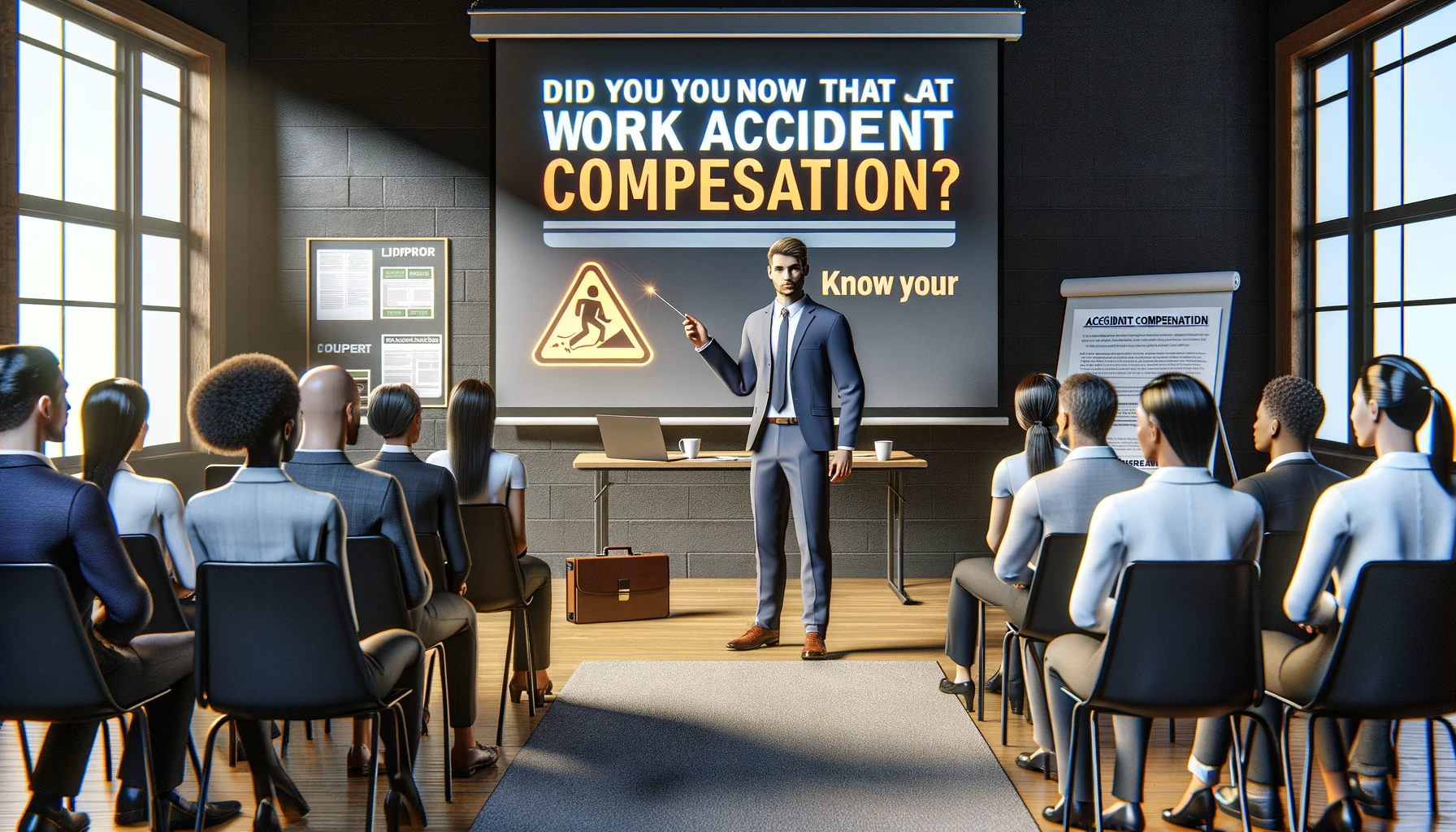Accidents can happen at any workplace, and when they do, it is crucial for employees to understand their rights and the steps they can take to obtain fair compensation. Whether it's a minor injury or a severe accident, knowing how to navigate the process is essential. In this article, we will explore the keys to obtaining fair compensation for a work accident and provide valuable insights to help you through this challenging time.
Introduction
Work accidents can have a significant impact on an individual's physical, emotional, and financial well-being. It is essential for employees to be aware of their rights and take the necessary steps to ensure they receive fair compensation for their injuries and losses. Understanding the keys to obtaining fair compensation can make a substantial difference in the outcome of a work accident claim.Understanding Work Accidents
Before delving into the process of obtaining fair compensation, it is crucial to understand what constitutes a work accident. Work accidents can range from minor incidents, such as slips and falls, to more severe accidents resulting in life-altering injuries. It is essential to recognize the different types of work accidents and their causes to determine the appropriate course of action. Work accidents can be caused by various factors, including unsafe working conditions, lack of proper training, equipment malfunctions, and human error. These accidents can lead to physical injuries, mental trauma, and financial hardships for the affected employees.Legal Rights and Responsibilities
In the event of a work accident, employees have certain rights that protect them and ensure they receive fair compensation. These rights include the right to medical treatment, wage replacement, and compensation for pain and suffering. Employers, on the other hand, have specific responsibilities to provide a safe working environment and carry workers' compensation insurance. Insurance companies play a crucial role in work accident compensation. They assess the validity of claims and determine the amount of compensation to be awarded. Understanding the legal framework surrounding work accidents can help employees navigate the process more effectively.Steps to Take After a Work Accident
After a work accident, it is vital to take immediate action to protect your rights and strengthen your claim for fair compensation. The first step is to report the accident to your employer, ensuring that it is documented accurately. Seeking immediate medical attention is also crucial, as it not only ensures your well-being but also creates a record of your injuries. Documenting the accident and injuries is essential for building a strong case. This includes taking photographs, collecting witness statements, and preserving any physical evidence. Gathering as much evidence as possible will help support your claim for fair compensation.Seeking Professional Help
Navigating the complex process of obtaining fair compensation for a work accident can be overwhelming, especially when dealing with injuries and recovery. Hiring a workers' compensation attorney can greatly assist in this process. An experienced attorney can guide you through the legal proceedings, ensure your rights are protected, and advocate for fair compensation on your behalf. Choosing the right attorney is crucial. Look for an attorney with expertise in workers' compensation cases and a proven track record of success. A good attorney will provide personalized attention, gather evidence, negotiate with insurance companies, and represent your best interests throughout the entire process.Determining Fair Compensation
Determining fair compensation for a work accident involves considering various factors. These factors may include the severity of the injuries, medical expenses, lost wages, and the long-term impact on the employee's life. Evaluating the full extent of the damages is essential to ensure fair compensation is obtained. Types of compensation for work accidents may include medical expenses, rehabilitation costs, lost wages, disability benefits, and compensation for pain and suffering. Understanding the different types of compensation available can help employees assess their entitlements and negotiate for a fair settlement.Negotiating a Fair Settlement
Once the damages have been assessed, the next step is to negotiate a fair settlement with the insurance company. This can be a challenging process, as insurance companies often try to minimize the amount of compensation they pay out. However, with the right strategies and guidance, employees can increase their chances of obtaining fair compensation. During negotiations, it is crucial to remain firm and assertive. Presenting all the evidence and supporting documentation will strengthen your case. Avoid common pitfalls, such as accepting the first settlement offer or providing unnecessary information that could weaken your position. A skilled attorney can provide invaluable assistance in navigating the negotiation process.Appealing a Denied Claim
Sometimes, work accident claims may be denied by insurance companies. This can be disheartening, but it does not mean the end of the road. Employees have the right to appeal a denied claim and seek a fair resolution. The appeals process involves providing additional evidence, addressing any issues raised by the insurance company, and presenting a strong case for fair compensation. Having an attorney by your side during the appeals process can significantly increase your chances of success. An attorney can help gather additional evidence, prepare a persuasive argument, and navigate the legal complexities involved in appealing a denied claim.The Importance of Documentation
Throughout the entire process of obtaining fair compensation for a work accident, documentation plays a crucial role. Keeping accurate records of medical treatment and expenses, documenting lost wages, and maintaining a journal of pain and suffering can strengthen your case. Detailed and organized documentation provides evidence of the impact the accident has had on your life and helps ensure fair compensation is awarded.Conclusion
Obtaining fair compensation for a work accident is a challenging process, but with the right knowledge and guidance, it can be achieved. By understanding your rights, seeking professional help, and documenting all relevant information, you can increase your chances of obtaining the compensation you deserve. Remember to consult with an experienced workers' compensation attorney to navigate the legal complexities and advocate for your best interests.Look for an attorney who has the right legal resources for your legal needs.
Contact us here on the Warmuth Law website or through our hotline 888-517-9888.













